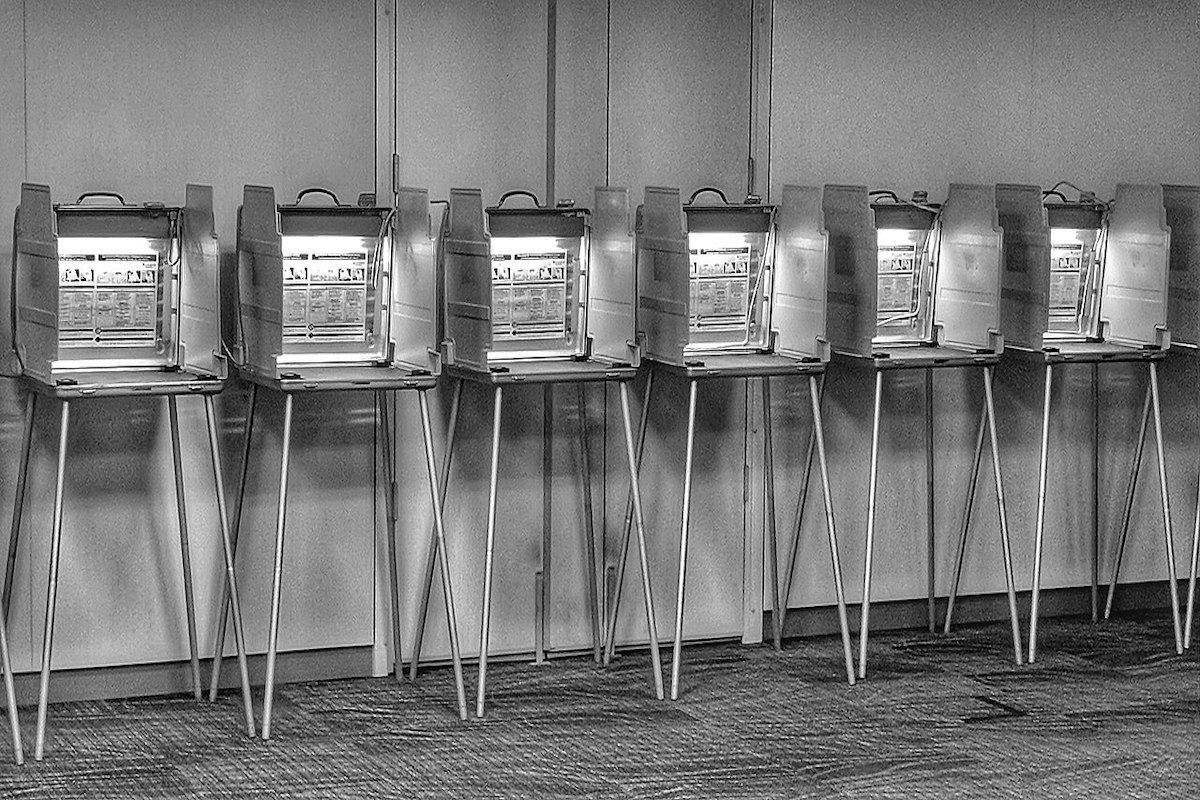Imagine a political system where a state’s entire population of citizens unites together to determine elected representatives, entrusting them with the creation and implementation of policies and legislation that would determine the fates of those who reside there. That concept defines the foundation of democracy in the United States with the caveat that the only citizens taken into account were a privileged few: middle-class, white, male, landowners.
The legacy of the United States’ first-wave democracy lives on today. Our political system was not built with the intention of incorporating the opinions and values of Latinos, Black people, or Indigenous people. The system that currently exists in the United States under the guise of democracy is obsolete. We, as citizens, have the ability to rebuild a humane, inclusive nation through modernized civic engagement. Given that the pandemic, albeit dismal, provides an opportunity to recreate the ways in which we engage voters, the time to embrace the new frontier is now.
Antiquated Voter Engagement
The current processes designed to captivate and encourage potential voters to exercise their democratic right to vote consist of mostly phone banking and door-to-door canvassing. By and large, these methods reach middle-class, white citizens‚especially if the person on the approaching end is monolingual in English, white, or both. On top of the 6%, and steadily declining response rate to polling calls, the people whose representation we need most are Latinos..
In order to claim our standing as a true democracy, we must create an inclusive political system by educating and engaging the population of voters who have been historically excluded from political conversations and electoral decisions. To reach new voters, we must build on and innovate old engagement methods. For example, relying on yard signs, phone banking and canvassing as a primary bedrock of reaching people often excludes Latino majority neighborhoods. Modernizing political advocacy by incorporating new techniques that include Latino majority neighborhoods is essential in order to reach a broader, more representative electorate.
Nationwide Online Voter Registration
The digital generation makes up the largest voting block in the U.S., surpassing Baby Boomers as the nation’s largest, living generation. Confining valid methods of voter registration to only in-person and physical mail-in options has two negative impacts: they disenfranchise Texas’ digital generation and exclude people of color, as Latinos make up the majority of the state’s Millennial population. The digital generation upholds a different vision regarding politics and the way that the country should operate in comparison to older generations. If we’re not engaging this group of voters, we’re operating without the input of almost a quarter of the voting population.
These potential voters are accustomed to online transactions and virtual interactions. They are also the generation who will inherit this country. By improving our digital literacy, we can activate the voting power of this generation. Modernizing our approach will move us forward toward embracing true democracy.
Dismantle the 30-Day Advance for Voter Registration
Joining the majority of the United States by implementing online voter registration in Texas is just the beginning of embracing the new political frontier. To ensure that America truly operates as a democracy, we must break down barriers that prevent a vast population of Americans from casting a vote. Embracing representative politics nationwide begins with modernizing voter registration practices at the state level. Texas’ futile requirement that individuals must register 30 days ahead of election dates acts as a voting barrier to most citizens, and is especially cumbersome to new voters and communities of color. In order to dismantle our flawed voting system, we must make registration easy and accessible. By implementing same-day registration, we can remove a barrier that stands in the way of the democratic participation in Texas. Taking it a step further, we can automate voter registration. This is as simple as automatically registering every U.S. citizen to vote on their 18th birthday.
This message is not merely a warning, in the same way that modernizing civic engagement is not a simple recommendation. We will fail our communities if we do not embrace change and engage the populations that our current democracy claims to serve. As we navigate the complexities of political engagement during a pandemic, we will begin to see that increased flexibility for voter registration is not only possible, but superior to outdated methods and requirements of voting.
We are on the precipice of a majority-minority America. A new generation of powerful young leaders are demanding drastic changes and we must meet this moment of urgency with bold solutions that can strengthen and ensure the continued success of the greatest democracy in the world.
***
Antonio Arellano is interim executive director of Jolt, a progressive civic engagement organization focused on building the political power and influence of young Latinos in Texas. Twitter: @AntonioArellano.



